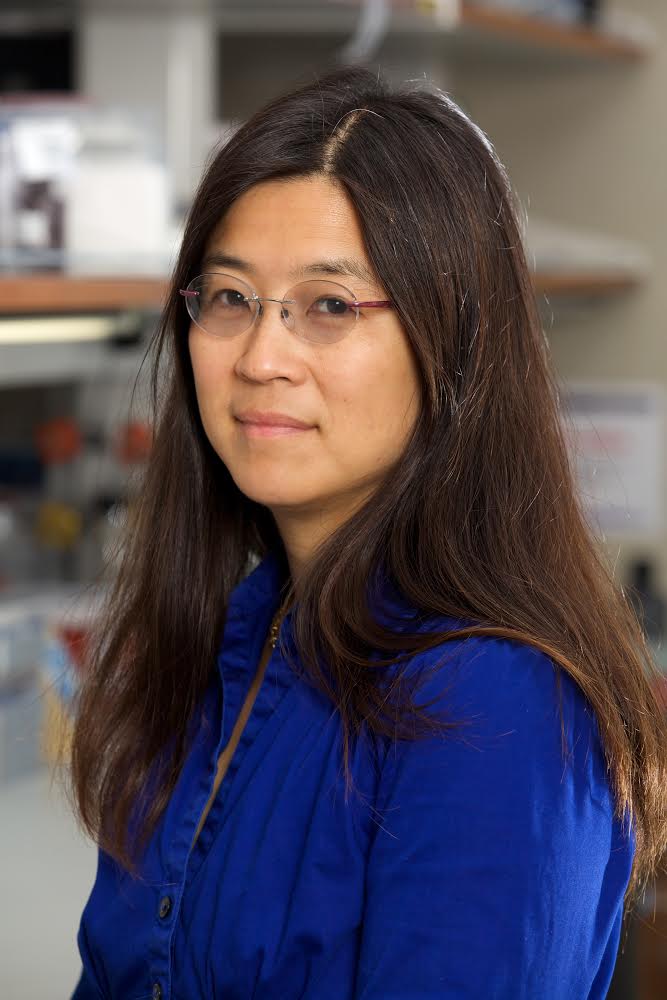
Louise Laurent, MD, PhD

- Profile
- Bio
- Research
- Current Projects
Profile
Professor and Vice Chair for Translational Research
Division of Maternal Fetal Medicine
Department of Obstetrics, Gynecology, and Reproductive Sciences
University of California San Diego
Areas of Expertise: Embryonic stem cell research, genomic technologies, extracellular miRNA, perinatology
Bio
Louise C. Laurent, MD, PhD, is a board-certified perinatologist who specializes in caring for women with high-risk pregnancies. Perinatologists, also known as maternal-fetal medicine specialists, care for pregnant women who have an increased chance that they or their babies will have health concerns. Dr. Laurent's expertise is in treating women who are at risk for preeclampsia or fetal growth restriction.
Dr. Laurent is the director of perinatal research and a professor in the Department of Obstetrics, Gynecology, and Reproductive Sciences at UC San Diego School of Medicine. As a physician-scientist, her research uses stem cells to understand early development, including early placental development. She has led several National Institutes of Health (NIH)-funded clinical trials that investigate extracellular RNA for predicting and diagnosing pregnancy-associated disorders, such as placental dysfunction.
Dr. Laurent has co-authored book chapters, textbooks and many peer-reviewed articles, and her work has been published in Nature, The New England Journal of Medicine and Cell Stem Cell, among others.
She completed a fellowship in maternal-fetal medicine and a residency in obstetrics and gynecology at UC San Diego School of Medicine. Dr. Laurent earned her medical degree and doctoral degree in biochemistry from UC San Francisco. She is board-certified in obstetrics and gynecology and maternal and fetal medicine.
Dr. Laurent is a member of numerous professional societies, including the American College of Obstetrics and Gynecology, the Society for Maternal-Fetal Medicine, the Society for Gynecologic Investigation, the International Society for Stem Cell Research and the Perinatal Research Society.
Source: UC San Diego clinical profile
Research
|
Female Reproductive Tissue Mapping Center Sep 25, 2020 - Aug 31, 2022
|
|
Stem Cell-based Human Placenta-on-a-Chip Using 3D Bioprinting Sep 30, 2019 - Aug 31, 2021
|
|
Omics Data Generation Center (ODGC) for the Acute to Chronic Pain Signatures (A2CPS) Program Sep 1, 2019 - Jul 31, 2023
|
|
Development and application of a scalable workflow for immunomagnetic separation of exRNA carrier subclasses and molecular analysis of their cargo Sep 1, 2019 - Aug 31, 2021
|
|
Stress-mediated trophoblast proliferation: adaptation or pathology? Jul 20, 2019 - May 31, 2024
|
Updated August 8, 2021
Current Projects
CO-CREATE (Community-driven Optimization of COVID-19 testing to Reach and Engage underserved Areas for Testing Equity—in Women and Children) is one of the RADx-UP projects funded by the NIH. CO-CREATE is a partnership between UC San Diego, San Ysidro Health, and the Global Arc.
This is a study to understand the challenges and supports involved in getting tested for COVID-19 in the San Ysidro community, and to use results to design strategies to make it easier to get tested for COVID-19.